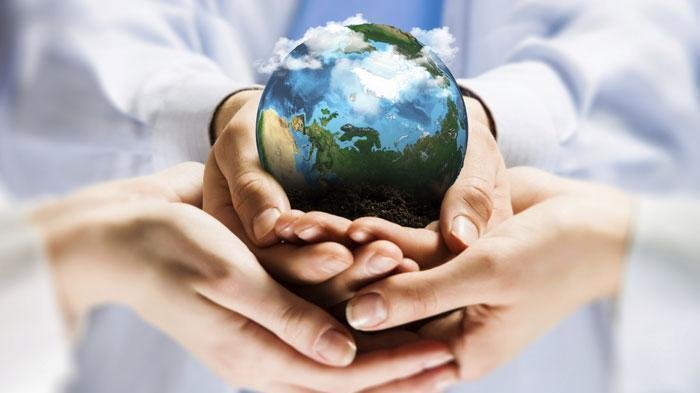Religions should fulfil their obligation for imbibing values of protecting nature, also introspect whether their rituals, festivities harm the environment

St Francis of Assisi (1181-1226) is one of the mostcelebrated persons with deep simplicity and passionate love for nature and theenvironment. This simple and unassuming person preached to people, birds andanimals accentuating the beauty and magnificence of God's creation. His loveand deference for nature are depicted in many stories and anecdotes. One day hewas so captivated by a sight of birds on the roadside, he asked his companionsto halt for a while as he preached to them. When he did so, not even a singlebird left the place.
Pope Francis embodies with his name a person and aprogramme. He lives a genuine, authentic, simple life and shows great interestfor our fragile and tormented Earth. In his first Encyclical over ecologicalprotection “Laudato Si” (2015), the Pope appealed zealously to the wholehumanity and every individual “for a new dialogue about how we are shaping thefuture of our planet. We need a conversation which includes everyone, since theenvironmental challenge we are undergoing, and its human roots, concern andaffects us all”. The climatic changes and calamities caused by the pollution ofthe water, soil, air and the sky are wounds inflicted by men on mother Earth,which threatens the future of the world itself. Any step taken to rejuvenatethe ecosystem must encompass every human being.
Goa, which has pristine beaches, lush green fields, hillsand rivers, is threatened by the scourge of unwanted development. Its roadsidesand beaches are now full of garbage. We have encroached into nature and lostour concern for the environment. Political agenda takes precedence over natureconservation. Destruction of hills and landscapes is going scot-free. Becauseof the systematic destruction of our hills, temperatures will soar. In the future,we will witness major landslides. Our groundwater resources, rivers and sea areunder the threat of unwanted development.
We know that the winds and rains take our toxic garbagethrough the rivers into the sea, which is now full of plastic, microplasticsand all sorts of waste. Microplastics are tiny pieces of plastics, less thanfive millimeters long, which are detrimental to our oceans and aquatic life.Fish and birds mistake microplastics for food. Plastic pollution has a deadlyeffect on wildlife. Thousands of seabirds and marine mammals perish each yearafter mistakenly devouring plastic and garbage.
Eight million tonnes of plastic enter the ocean everyday. It travels vast distances carried by currents to all oceans includingremote Antarctica. Studies estimate that there are over 15-51 billion pieces ofplastics floating or resting on the bottom floor of the oceans. At the currentrate, plastic is expected to outweigh all the fish in the sea by 2050. Theplastic in the oceans will eventually harm human beings. When fish consumeplastic and toxic waste, the toxins it contains breaks down inside theirbodies. When we consume that fish, we're consuming the toxins too.
It is time citizens take a solemn pledge to protect ourown future, health and well-being? Our religiosity and spirituality shouldfocus on rescuing the earth, preserving its habitats and species. Religionsshould recognize their obligation for imbibing the values of protecting natureand introspect to see how environment loving and friendly are their rituals andfestivities. Do our religious celebrations create water, soil and airpollution? Is it necessary to use fireworks to celebrate our festivals? Religiouscelebrations and rituals should be looked at from the perspective of trueworship of God. The sublimity and depth of our religious ceremonies lie not inits exterior showbiz, but in its interior attitude and experience of theDivine. Prophet Amos says, “Though you bring choice fellowship offerings, Iwill have no regard for them. Away with the noise of your songs! I will notlisten to the music of your harps. But let justice roll on like a river,righteousness like a never-failing stream!” (Amos 5, 23-24).
A rethinking and new spirit of awareness in religiouscircles is the need of the hour and it has to reach schools and colleges,companies and cities.
Religion holds a key position in protecting the earth andin educating its followers. The very first book of Genesis in the Biblecontains profound teaching about human dignity and his responsibility. Each manand woman is created by God in His own image and likeness (Gen 1: 26). TheBible speaks from three fundamental and closely connected relationships: withthe Creator, with our neighbour and with the Creation itself. However, theserelationships are at the very onset damaged by man. He refuses to acknowledgehis creaturely limitations and disobeys God's command. A clear consequence isthe failure of man to guard and protect God's Creation.
The Bible speaks about the harmonious relationshipbetween human beings and nature. They are invited to be bridges between thecreator and the creation. A change of heart is the prerequisite for saving theEarth and it has to begin religiously.